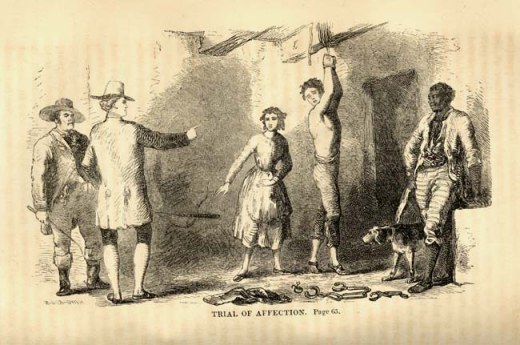Throughout the 17th and 18th centuries, Britain used many different techniques to keep the Irish population underhand, one of which was the practice of forced indentured servitude. As touched on in last week’s post, Irish prisoners were often sent away to work on plantations set up in British colonies, the most famous of these colonies being Barbados and Jamacia. While on these plantations, they worked as indentured servants. Indentured servitude refers to a form of labor where a person contractually works without pay for a certain amount of time in exchange for an indenture, loan, or to serve out a sentence for a crime. It is very important to remember, however, that at no point in history were the Irish considered “slaves”. This is a very popular misconception spread for various reasons spanning from simple unawareness to a malicious attempt to dismiss the treatment of African chattel slaves in discussions surrounding racism. There are several key differences between the two practices. Indentured servants were freed after five to ten years of work, and afterward, they could own land, travel, work, and move up in society. Irish indentured servants were free to marry whomever they chose, and their children were born free. African slaves were owned for life and had little to no prospects or rights even if they were to be free. The one thing that the two practices shared, however, is the dehumanizing, abusive, and horrific treatment afforded to both groups.
The majority of Irish prisoners forcefully sent to British plantations in the West Indies were “undesirables” such as political prisoners, the homeless, convicts, or prostitutes, the most popular of the crimes being vagrancy or theft. There, they labored on cash crop plantations. Originally, they labored alongside imported African slaves, but as the crops shifted from tobacco and cotton to sugar, resulting in the “sugar boom”, Irish indentures were separated from African slaves and saved for the more ‘skilled’ positions of labor. Some historians believed that the two groups were separated to prevent a dual uprising, while others speculate that it was just another way to keep the two groups underhand.

A sketch depicting cruelty to an Irish worker on a plantation Source: Google Images
Conditions in the West Indies were harsh and unforgiving. Many indentured servants had trouble acclimating to the overbearing tropical heat and were subjected to regular beatings and public floggings for even the most minor of offenses. Half of all Irish indentured servants in Barbados died before their term of service was finished, earning the Caribbean the distinction of a “white graveyard”. To this day, the poor white descendants of the Irish that chose to stay in the Caribbean face ostracization from both the Caribbean natives and the European nations.
https://www.youtube.com/watch?v=D8yEqco39T8
The above link is to the song and lyrics for “Tobacco Island”, a Flogging Molly song about the bloody history of the Barbados tobacco plantations.
Sources:
Bot, History. Irish Catholics Indentured in Colonial Barbados | World History. worldhistory.us/latin-american-history/caribbean-history/irish-catholics-indentured-in-colonial-barbados.php. Accessed 20 Feb. 2023.
“Flogging Molly – Tobacco Island – with Lyrics!” Www.youtube.com, www.youtube.com/watch?v=D8yEqco39T8. Accessed 20 Feb. 2023.
“Irish Indentured Servants in the Colonies.” Accessible Archives Inc., 23 Feb. 2017, www.accessible-archives.com/2017/02/irish-indentured-servants-colonies/.
The Irish of Barbados | Irish America. 1 Oct. 2015, www.irishamerica.com/2015/10/the-irish-of-barbados-photos/. Accessed 20 Feb. 2023.
Thu, et al. “The Story of Irish Indentured Servants Sent from Here to the Caribbean.” Irish Examiner, 4 July 2019, www.irishexaminer.com/lifestyle/arid-30934805.html.
“What Is Indentured Servitude?” Investopedia, www.investopedia.com/terms/i/indentured-servitude.asp#:~:text=Indentured%20servitude%20refers%20to%20a%20contract%20between%20two.